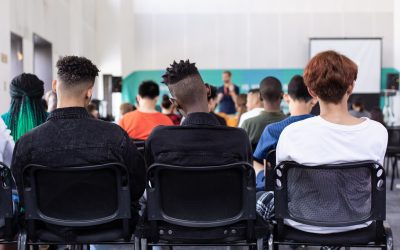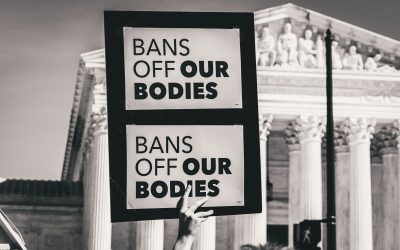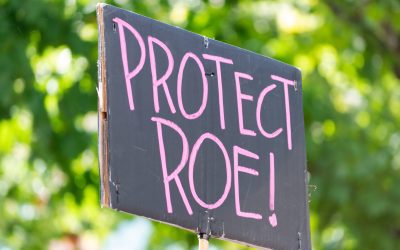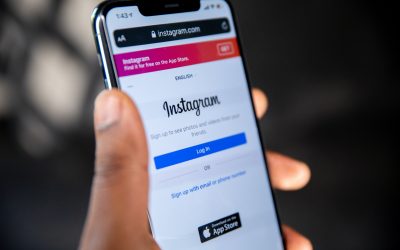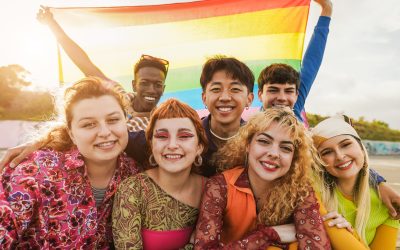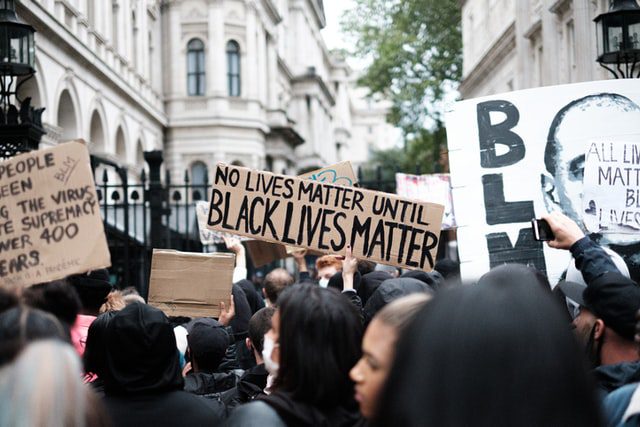
Reproductive justice depends on defending the needs of women of color and other marginalized people, including trans people. Here are some individual actions that we can take to support Black lives and strive for justice in all aspects.

By Ella Dorval Hall
July 10, 2020
S isterSong defines Reproductive Justice as “the human right to maintain personal bodily autonomy, have children, not have children, and parent the children we have in safe and sustainable communities.”
The term Reproductive Justice was coined in 1994 when a group of Black women called the Women of African Descent for Reproductive Justice met on the matter of the individual choice to plan your own family, and “recognized that the women’s rights movement, led by and representing middle class and wealthy white women, could not defend the needs of women of color and other marginalized women and trans* people” (SisterSong).
“There can be no Reproductive Justice when Black womxn are criminalized, Black trans and non-binary people are marginalized, and Black parents cannot see their children grow in peace.”
On June 5th, amidst our current civil uprising, leaders of the Reproductive Justice movement and Movement for Black Lives brought hundreds of people together for “Defending Black Bodies: A Reproductive Justice Townhall” that I was grateful to listen in on.
At the end, Monica Rae Simpson of Sister Song asked us to reflect on the question “What am I willing to do differently to support Black lives?” and to post our answer to social media.
I share my personal response in the hopes of responding to these leaders’ call “for reproductive health, rights, and justice activists to get in formation” because “there can be no Reproductive Justice when Black womxn are criminalized, Black trans and non-binary people are marginalized, and Black parents cannot see their children grow in peace.”
What am I willing to do differently to support Black lives?
- I am willing to redistribute my wealth by giving at least 5% of my income for the next three years to Black-led organizations fighting to defund police, end violence against Black lives, and prioritize the investment in Black communities.
- I am willing to talk with my family about how white supremacy and class privilege have benefited me and that the harm and killing of Black people has been an inherent tool to uphold these systems.
- I am willing to recognize and name the ways I embody anti-blackness and work to uproot these patterns.
- I am willing to refrain from calling the police, particularly when Black folks are involved, because it is a weapon of whiteness that I am no longer willing to use.
- I am willing to listen to the Black people leading this movement and center their demands in my actions. Not just right now, but I am committing to this redistribution of power and wealth and anti-racism work for my lifetime.
- I am willing to use my voice in the institutions (work, friends, school, sports, etc.) I am part of to name white supremacy and demand that we hold ourselves accountable for making changes that dismantle the systems that keep us white folks at the top.
I write these actions as a white, cis, heterosexual woman with access to wealth, knowing that the Reproductive Justice movement, Movement for Black Lives, and Black femme leaders are calling for specific actions from me.
And I also know that doing this work, this big, challenging, beautiful, and lifelong work, is also making me freer. Freer from the ills of white supremacy—the perfectionism, defensiveness, objectivity, and paternalism—that so often pervade and harm my own mind.
I know little, I have far more to learn, and I am often falling short, or trying to bring perfectionism and other qualities of white supremacy to this work.
So, I am asking myself about accountability—who I am accountable to (if anyone)—and thinking about how to build structures in my life that hold me, and other white people, accountable for harm and anti-racism work.
I want to express deep gratitude to all of the speakers at “Defending Black Bodies: A Reproductive Justice Townhall,“ to Monica Rae Simpson, to the Women of African Descent for Reproductive Justice, and to all of the Black trans and femme people who have historically fought for Reproductive Justice.
Here are some organizations, people, and resources that have and continue to be helpful for me, in case others may be interested:
- Showing up for Racial Justice (SURJ)
- Resource Generation
- SisterSong
- Charlene Carruthers
- Marc Lamont Hill
- Afrosexology
- adrienne maree brown
- Sonya Renee Taylor, founder of The Body Is Not An Apology
- Erika Hart
- Me and White Supremacy by Layla Saad
- Fearing the Black Body: The Racial Origins of Fatphobia by Sabrina Strings
#RJ4BlackLives
Ella Dorval Hall was previously employed with Healthy Teen Network as a Capacity Building Specialist.



